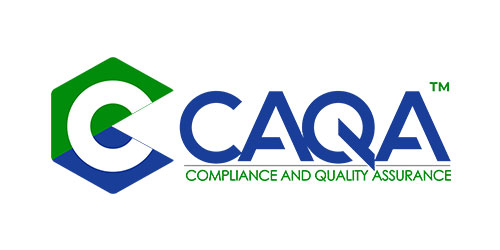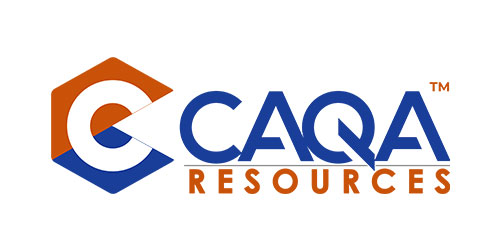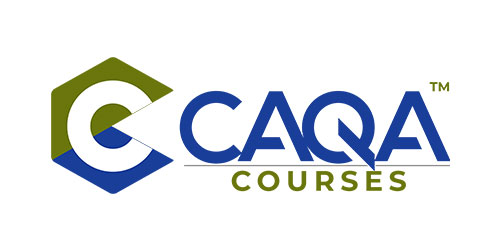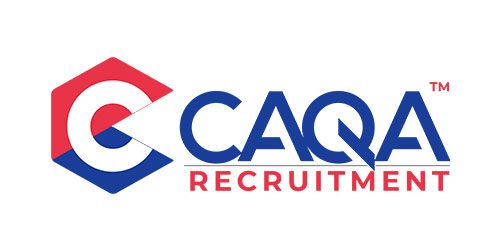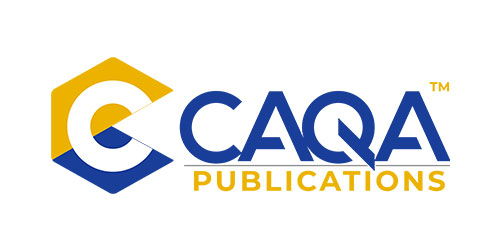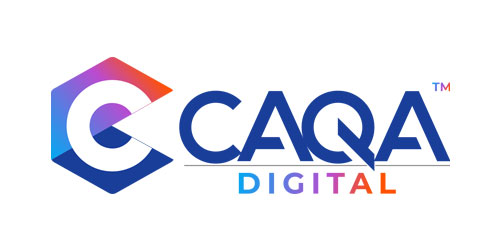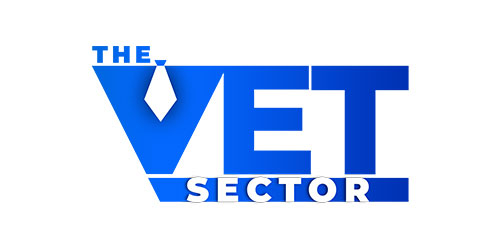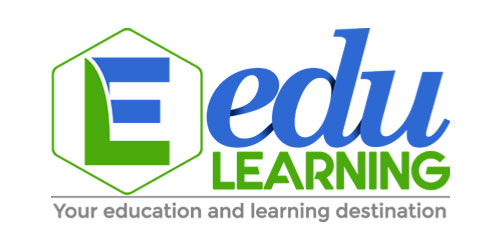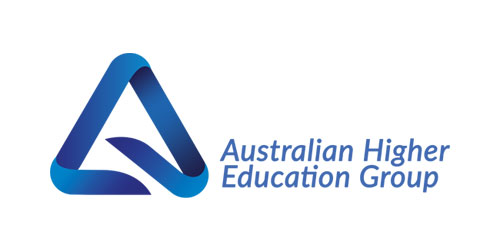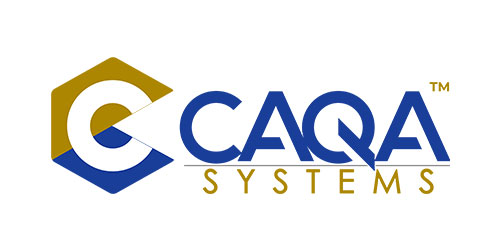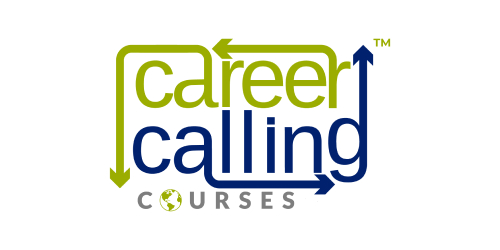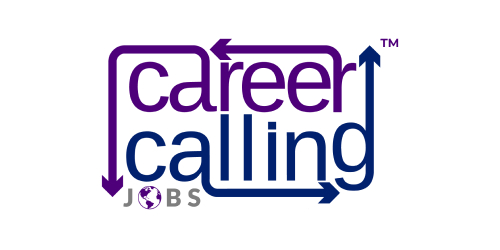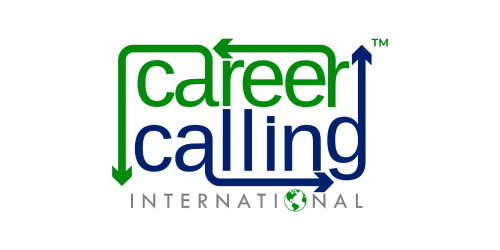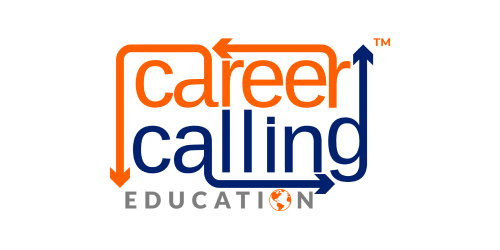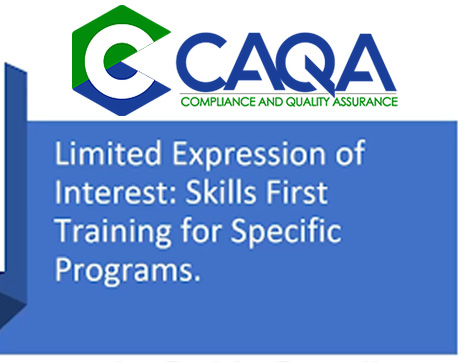
News
Sukh Sandhu – Hello and welcome everyone. Please accept our thoughts and prayers for all those who are affected by the lockdown across Australia before we commence today’s presentation.
The last several months have been extremely demanding and exhausting, but we are hoping that we will be able to come out of this situation eventually. We respectfully acknowledge the Wurundjeri, people of the Kulin nation who are the traditional owners of the land on which we are located and pay our respects to their elders past, present and emerging. We are honoured to recognize our connection to Wurundjeri country, history, cultures, spirituality through these locations and strive to ensure that we operate in a manner that respects and honours the elders and ancestors of these lands.
Please keep in mind that this webinar is not sponsored or affiliated with the department of education and training. We are doing this webinar exclusively for informational purposes only.
Because we have been receiving hundreds of messages and emails that we were thinking basically that if we start responding to those, that will take us a lot of time. So we decided to provide a professional development event to assist you with all of those questions and inquiries. As RTO owners and consultants, we understand how difficult it can be to comprehend and find information if you are new to the funding training space and regulatory requirements. And that is the area where we can assist you.
We would also like to point out that as useful for what professional development sessions, a substantial amount of information will be included. We usually offer professional development sessions to people who have a retainer agreements service with us, or those interested in conducting internal audits.
The information presented will be relevant to us, our organization, our services, as well as the topic we are presenting to you.
My name is Sukh Sandhu, and many of you are familiar with me from my work in the compliance and quality industry, audit, regulatory, risk management, and corporate governance fields. I am an ISO 9001 lead auditor, have been working in the education and training industry for the last 25 years, have worked as national compliance and quality assurance manager with the Australian Catholic University, chief operating officer and chief executive officer for a number of training providers. I have also worked with the Australian Skills Quality Authority as their business systems project official back in 2011, 2012. My qualifications include two MBAs, three masters in IT and systems, a Graduate diploma of management learning, Diploma in training design and development, Diploma in vocational education training, Diploma of work, health and safety, Diploma of Quality Auditing, Advanced diploma of management, Advanced diploma in marketing, human resources, information technology, and a number of other courses and qualifications. I have been working as a lecturer and as a trainer and assessor since 1998, I’ve been a vocal advocate of audit reforms and system centred auditing practices rather than auditor centred auditing practices for many years.
And today I’m joined by my colleague Stuart Newman, who is our National Business Development Manager. Stuart has been working with us not only for established brands but also to help other brands and organizations generate new business.
So let’s take a look at the primary reason why we are all here today. The department of education and training Victoria has notified the industry skills first contracting arrangements for 2022. The subject of our discussion today is the same. Limited expression of interest skills, first training for specific programs.
Several questions were submitted prior to this event, and you are also invited to submit additional questions through the comments section during this session as well. Given that we only have an hour here, we will try our level best to cover as many questions as we can in that timeframe. If we are unable to answer those questions during this session, we will do our best to address them after the session concludes. The department of education and training sent out the contract notification that they basically called CN to all funded training organizations on August 10th, 2021, informing them of the terms of the agreement, skills First VET Funding Contracts for the year 2021 are set to expire on the 31st of December, 2021, according to this contract notification. Skills first VET funding contracts for 2022 will be available through the department for the one year period. The department has adopted a one year contract in order to account for the changing and dynamic nature of the vocational education and training sector. Reforms are still in the way at both the state and national levels, and they are trying to keep the second contract stable until 2022, while these reforms are being established and enforced. The department of education and training expressed their confidence in the quality and performance of the existing contractor training providers, as well as they have demonstrated capacity to offer skills First training courses.
So if you are, or anyone already has an existing 2021 contract, you will be offered a 2022 contract without having to go through the whole expression of interest process again. Contract offers for 2022 will be subject to the department of education and training, being satisfied with the results of an independent financial review assessment conducted on your RTO’s operations and business operations.
To be eligible to participate in this process, you will be needed to submit information about your company’s corporate structure as well as your most recent audited financial statements, my apologies, for the most recent financial year reporting period. These financial statements must be audited by an auditor who is registered with the Australian securities and investments commission, we call ASIC. These documents will need to be presented to departments independent financial assessors by the middle of October this year.
Learn local organisations, if you are one of them, will be required to provide audited financial accounts, but they are not required to have their financial statements to be audited by an ASIC qualified auditor as is the case currently. You don’t have to provide audited financial statements at all if you are one of the TAFE Institute, dual-sector university, Victorian government senior secondary provider, or the legal entity that is a Victorian government department, or other Victorian government or entity, including those owned by the local councils in Victoria. Before we proceed to the next segment, we would like to inform you that this video is being recorded and will be available on our main website at www.caqa.com.au. You can access at any time you like to listen to it again.
Slide two.
In this webinar, we will walk you through a number of important areas of the funded contract. We will also discuss our organisation compliance and quality assurance and career calling international. Then we will move to information related to what is skill first, how it work, the expression of interest process, unpacking the contract, what does entering into contract entails, what the capacity and capability indicate, main evaluation criteria, approval and disapproval process, and a quick summary section. Let’s move to slide three. So with a 30 year-old dream and a 12 years practical order of operations, we have built an organization with 35 excellent consultants, thousands of compliant audit outcomes, more than 25,000 training and assessment resources, and more than 100,000 professional development webinars, sessions events to our credit. We already have a brand in which you can place your trust. For the simple reason that we couldn’t find any compliant learning and assessment tools on the market when we first started looking, my colleagues and I decided to start career calling. Despite the fact that there were resources available, none of them was of the quality we wish to deliver to our students. So our resources have been tried and proven, and they are audit ready as a result of our industry experiences. Additionally, we provide audit and regulatory compliance support, as well as advocacy and support for industry best practices. Other organisations are distinguished from other organizations for a variety of reasons. Almost everyone who works in this organization has known each other for at least 10, 15 years. They are all industry leaders who are highly qualified and forward thinkers who have a can-do attitude and who work together as a team in order to accomplish their goals. Because almost all of our team members have come from education and training backgrounds, they have comprehensive knowledge of adult learning principles, theories, and standards, as well as compliance and regulatory background. They also have extensive knowledge of compliance and regulatory frameworks and requirements. Of our organization also spent a significant amount of money on research activities, better technologies, and recruitment of exceptional people. Any organization is as good as the people that are part of it.
Therefore we have always placed a strong emphasis on finding out individuals who have a positive attitude and it can-do mentality. So there are a lot of things basically that we do through CAQA and career calling brands over subsidiaries, EDU learning, my apologies, and CAQA skills provide professional development sessions, events, webinars, CAQA recruitment and Career Calling Jobs provide recruitment services. Our sister companies CAQA digital and online video solutions provide website related services, digital, SCORM compliant files, mobile learning, and e-learning solutions. And our CAQA systems department provides information technology, cybersecurity, networking, and system support for your organization of various sizes. We have a number of other businesses as well. So I’m not mentioning those at the moment, but you can find more information on career calling websites or CAQA websites. Through CAQA we offer the following services, training and assessment resources, internal audit services and health checks, course accreditation business analysis, course products and e-learning, RTO financial viability advice and support, validation and moderation services, due diligence services, website design, recruitment services, professional development services, state and federal level funding consultancy services. You can visit our website for more information. Please also do not forget to follow us on social media including Twitter.
Some of our Twitter handles are mentioned on this slide. Let’s move to slide number four. We were receiving as we discussed a large number of questions about the contract. So we decided to organize the webinars to address them all at once. As a result, a lot of your questions will be answered through the information presented on the slides. Our primary goal is to provide you with all the knowledge and skills you require in order to operate a legally compliant training organization so that the department of education and training and other regulatory bodies can come and audit you anytime and have confidence that you are doing the things according to the requirements mentioned in the specified contract and regulatory frameworks.
Only training providers who meet rigorous eligibility and assessment requirements are eligible to deliver subsidized training under the skills first contract. In a limited expression of interest process that was launched on Tuesday, August 10th, 2021.
Training providers who can deliver specific courses to fulfill government priorities, as well as the Victoria’s skills and job demands will only be considered according to this Skills First 2022 contract. For training providers to ensure that their application is comprehensive and filled on time, filled and filed on time, it is critical that they become familiar with all the documents and supporting resources.
Consultants such as us, who have extensive experience in training and compliance, can assist you in gaining an awareness of regulatory and compliance standards and expectations of Australian government departments, both at state and federal levels.
My colleague Stuart would like to add more information to the section now. Stuart, over to you.
Stuart Newman – So thank you Sukh and good morning and thank you for coming. As you know The Department has opened a limited expression of interest for new training providers like you. That word limited indicates that there are compliance and regulatory requirements also known as rules of call of expression of interest. that you must know before embarking on this initiative. As Sukh has said at Compliance and Quality Assurance (CAQA), we want to help our clients understand these requirements so that you can make an informed decision. We also strongly advise that you read all significant documents, including the vet funding contract, the guidelines about eligibility, the guidelines about fees and the quantity charter so that when you embark in this expression of interest, you will have all the required information.
Sukh Sandhu – So the next slide is what is Skills First? Skills First is a set of reforms for the private training and TAFE system. That reform ensures that Victoria’s training and TAFE system delivers high quality training that leads learners to real jobs. Skills First is made up of high-quality training that students and industry can trust, aligned to industry and workforce needs, a real voice for industry in training, and funding for high needs learners who need additional support to engage with and succeed in education and training, and access to targeted relevant training for students in regional areas. My colleague Stuart would like to add more information to this section now. Stuart over to you again.
Stuart Newman – Yeah. Thank you Sukh. So let’s start with the basic question. What is Skill First? Because that will be a good foundation to the next slides. So Skill First is a Victorian government program for funding individual entitlements. In this context, entitlement means the right to the government subsidised place in training for persons who are eligible in accordance with the criteria set in the contract. Understanding the concept of eligibility is very important because most providers are found non compliant with the eligibility criteria and requirements set out in Clause 2 of the contract during audits. So just for clarification as we continue, just for a clarification the Contract means the 2022 Standard VET Funding Contract Skills First Program and the Department means the Department of Education and Training.
Sukh Sandhu – Slide six, what is the expression of interest about? An expression of interest provides you with the opportunity to represent yourself in a clear and professional manner to the department. It is an opportunity to provide present critical information and to demonstrate your organization is suitable, interested, and available in respect to the funding contract being considered. Now, my colleague Stuart will add more information in this section.
Stuart Newman – Yeah. So to see the EOI, it may be better to analyze it from the perspective of the approaching that gives you. So the EOI is a process by which you demonstrate your desire to deliver nationally recognised vocational training. It’s also a process by which adhere to the requirements and obligations set out in the Contract of the Skills First Program, but more importantly, and please note this, more importantly EOI is a process by which you will confirm your capacity and capability. Capacity and capability will mean your ability to demonstrate you have a track record of delivering quality training and assessment, and that you are ready to meet all the requirements such as compliance expectations and Framework. And we want you to note that the contract has a strict legislation and obligation that you must demonstrate if successful in this application.
Sukh Sandhu – What does entering into a contract entail? Any contract regardless of whether it is with a private or public organization, will always have terms and conditions that must be followed in order for each to be valid. The contract is legally enforceable and provides rights and obligations that exist between or among the parties to the agreement. Now my colleague Stuart will provide additional information on this subject, and Stuart will also explain some of the information contained in that following few slides as well. Stuart to you.
Stuart Newman – Yeah, thank you Sukh. So as Sukh said the VET Funding is a Contract BETWEEN The State of Victoria through the Secretary of the Department of Education and Training AND you as a provider.
So by applying for and accepting the contract, you are agreeing to be bound by the terms of the funding contract. This includes your agreement that you have carried out all relevant investigations and readings to acquaint yourself with your contractual obligations.
And one of these documents is the quality charter. This charter will help you understand how the department expects you to deliver key aspects of Training Services in the Contract. As you can see from the slide, the six principles of this quality charter are the guide to ensure strong, stable, and high quality training. The accountability and governance in Principle 2 aims to ensure the proper use of the position of trust placed in the expenditure of public money because this is taxpayers’ money. So the department wants accountability in governance in this contract.
There are a lot of people who are asking us if there is an audit in the skill first program? And the short answer is yes. The department may conduct an audit at any time to confirm you are complying with the contract and they want to establish
- whether and to what extent the funds has been used in respect of the skill contract And
- to investigate allegations or suspicions of misuse of the funds, and
- to determine the extent to which the training services are of high quality.
But, there is also a requirement of internal audit. Also you will be required to conduct and submit an internal audit within six months after the Commencement Date. The internal audit and the rectification must be signed by the CEO. And anytime the department may ask you to submit this internal audit report, including the rectification that you have taken according to the internal audit.
Sukh Sandhu – I would also like to add something Stuart to the previous slide as well. So the skills first application that provides all the RTOs an opportunity, eligible RTOs, my apologies, an opportunity to provide high-quality training to Victorian students in order to close the skill gap. It is not a business opportunity that is unconcerned about the students or the quality of education and training. The Australian government at federal level and Victorian government are committed to ensuring that every dollar spent on funding is spent wisely as much as audits may occur at anytime as Stuart said to ensure that all is well at your end, and that you are aware of your responsibilities, obligations, and regulations under which you operate and contracted.
Stuart Newman – Yeah. Thank you, Sukh. So what will you need to demonstrate in this EOI? So let’s start with the do’s. The do’s are, you must have delivered training in one or more programs of 2022 released office specific programs that you can find in our website, and you have to make sure that you have delivered to a minimum of 20 students in 2020, and a minimum of 10 students in 2021 calendar year.
The other do’s is you must complete all documents and sign on the declarations. Your financial assessment must pass the probability of default assessment to be undertaken by independent corporate that is assigned by the department.
Let’s now go to the don’ts. So since January, 2011, which is in the last 10 years, you must not, you must not have had a Victorian funding contract or service agreement terminated by the department on the basis of your performance. And another don’t is you must not have contracting or otherwise dealing with any disallowed person. In the questions and answer section we will elaborate what does disallowed person means
In area of the evaluation criteria, one of the main factors is your financial assessment task As Sukh has elaborated you must pass the Probability of Default Assessment to be undertaken by an independent contractor. And point two is your Training and Assessment delivery and business practice need to have a quality track record and satisfactory Compliance and Quality history. And number three in the evaluation criteria is, you must have a sound program to deliver plans, PDP, which we’ll elaborate on in the next slide.
In evaluating this criterion, the Department will exercise its own discretion and due diligence including a review of your data, submitted to the NCVER against measures associated with deliberate and typical course durations.
So what are the program delivery plans? This is one of the main pillars in your submission. The program delivery plan is your anticipated training delivery plan that reflects the nature and quantity. So it’s not only the quality, but also the quantity of the training you plan to deliver. In this context, the amount of training is important. So the department will use this information to review your forecasted training.
A sound PDP is one which strongly demonstrates the alignment of the anticipated delivery with the objectives in the SVTS. Alignment is here the key word, that means it will play a great role in your PDP, or your program delivery plan. You are strongly encouraged to consider the anticipated delivery with reference to the government’s objectives, and you have to align your PDP to supply with employment demand. So the jobs and training needs report are important references for you to understand how to align your PDP with the employment demand.
How do you know the employment demand?
You have to see the job and training needs report that you can find in SVTS portal.
Sukh Sandhu – I’ll add something to PDP. So PDP, for the organisations that have ever been contacted by the department of education and training, they know that this has been going on for the last several years. And training providers submit this program, delivery plans, PDPs, to the department in order to offer critical information as Stuart explained, that supports in further developing the Victorian training system including the type of training to be provided and how it will be delivered. So the PDPs serve as a foundation for the department’s contract and qualification allocations, as well as deal with previous history. So Stuart now you can explain the next one. How do you demonstrate that your PDP is aligned with government job outlooks?
Stuart Newman – Yeah, so how do you ensure the alignment of your PDP with the job outlook? As we said, alignment is the key to your application. So in the submission portal in the SVTS, there is a section of PDP objectives. These objectives are three, one is related to delivering quality, the second one is it’s alignment to the growing employment, and the third is how do you promote equity and address disadvantages. So your PDP must answer these three questions adequately. For example, in number one, delivering quality, you can articulate how your training policy supports your students to be well equipped for employment. And please remember to articulate the alignment of the delivery in a rational and convincing manner, because whatever you say in that, has to be supported with evidence. So, as mentioned in this previous slide, among other things, one of the main objectives of your PDP is to ascertain that you will be delivering a quality training that meets current and future industry needs. So the best way to ascertain that is to show that you will be delivering a quality training that meets current and future industrial needs. And that you can find it from the job outlook.
The department will provide you with a jobs and training needs report, or you might have it by now, and you are required to analyze your PDP as per these documents so you can align your PDP with the current and future industrial needs.
When you do comparison and analysis, please take into note Which one are the most popular qualifications? Which are the top occupation advertisers? Which are the Largest Employing Occupations? What are the largest employment industries and so on. And, not only that, not only the current stuff, but also you have to analyze the trajectory of the goals. For example, you can see the VET related employment by occupation and clusters from 2021 to 2031. That trajectory might give you, which qualifications are with the strong job outlook, or you can see in terms of apprenticeship and traineeship, which one courses have more apprenticeship commencement, which one were advertised more in SEEK. So this kind of comparison analysis will make your PDP strong and sound. During comparison and analysis, you are required to take into consideration your training location and the geographical location of the job and training needs. Not always one qualification is demanded in all areas. For example, if you see in the Gippsland summary, the most popular qualification are individual support, nursing, and infection control. Whereas if you see in the metropolitan areas, ECEC, individual support, and Disability are the most demanded quantification. So locations are also important when you do your comparison and analysis.
The next point is what are the important components in our submission that might be evaluated or assessed by the department?
One is the number of participants. In the portal, you must explain the estimated number of funded commencements that you’re expecting. And this has to be done quarterly. Quarter one, quarter two, quarter three, quarter four. It doesn’t go in bulk, it has to be allocated in quarters. And you can say quarter one I will take eight students, in quarter two I will have 15 students and so on, but note that not necessarily because you say the numbers, then you will be given those numbers, it depends on the department’s discretion. The second point is duration and intensity. In this section, information is required on the expected duration and intensity of the program, and they are required to explain the exact hours divided into program unit provided hours, also known as PUSH hours, and un-supervised hours. You have to differentiate which amounts are push hours, and which are unsupervised hours.
The third point is delivery mode. In the delivery mode you must indicate how prevalent a mode of student interaction is for the program. That means Face to face? Real-time? remote Self-paced remote (Other) The sum of these must equal 100.That means, what amount is face-to-face, what amount is real time, what other amount face to face and what, and amount is self-paced amount. But the sum of this must equal to 100. You can divide them, but take into account that you have to show the push hours, and then the delivery mode have to be in clear terms.
The last part is the delivery location. You might have one or two or three or four locations, but where is the location and what is the delivery of the quarter one, quarter two, quarter three of the participants. If you have 25% of the participants in location A, 75% of the participants in location B, you have to clearly explain why you’re doing that and where you’re going to do that.
Okay. Now how will you be assessed? In considering whether you are qualified to be selected, the department will assess whether you comply with the department’s requirement and really consider any issues arising from your due diligence. As part of this application, you are required to complete the due diligence request form. This is a very, very important form. And this due diligence request form consists of five sections. These five sections, you have to address them, articulate them, and you have to put correct information in that due diligence request form.
Next is areas that you will be assessing. Some people are asking if they can apply without the financial statement for confidentiality reasons. And the short answer is no, financial assessment is specified as mandatory documentation, and you will be required to submit your latest audited financial statements as it was explained in the introduction by Sukh. And this includes notes of the financial statement and the independent auditor’s report. And for this, I think the department has assigned an independent corporation. Equifax Australia Credit Ratings Pty Ltd, trading as Corporate Scorecard (ABN 33 007 527 611) is the nominated independent financial assessor for the 2022 Contracting Process and you are required to send them a financial assessment to Equifax Australia in which you will be assessed by them.
Can your expression of interest trigger an audit? May or may not. But What is sure is in considering whether you are qualified or not the Department will consider whether you comply with the Department’s requirements, and any issue/s arising from your due diligence. The Department will also consider your prior compliance and Quality conduct when assessing the suitability of the Applicant
Sukh Sandhu – So before we go to the timeline, I think I’ll say something on the previous slide as well. I mean,we were discussing that. Can your expression of interest trigger an audit? So, the thing is basically that any ideal, irrespective of whether they are applying for this expression of interest or not, they operate in , it doesn’t matter which state, or, which regulatory body under which regulatory body I think they need to be ready at any time to be audited by the regulatory bodies. So there should not be any surprise if an audit may, like you know, this expression of interest may trigger or may not trigger, but an audit can happen. So just to make sure that you are at your processes, operations, your systems, everything is 110% compliant, you follow regulatory and legislative guidelines at all times, and, like you know, you basically are like you know 110%, what are the requirements? What are your obligations? And if anyone from the department, or like you know, even consultants, basically they say oh, this is compliant, this is noncompliant. You can basically have the understanding to caution that judgment, to question basically that, okay, why is this compliant, why is this non-compliant? Can you show me if this is in return in any regulatory framework or guidelines, because that helps a lot. Like you know, and the auditor also understands, or the consultant who may help you. They also understand that you know what is happening and you are in control, not auditor, not a consultant but you. So, slide 23, the timeline. So Tuesday 31st of August, 2021 was the issue date, but there were contact notifications that were sent before this date. Friday, 1st of October, 2021, 5:00 PM Australian Eastern standard time is the closing time for expression of interest and the financial assessment process and submission of the relevant documentation. And before 31st of December, 2021, that department will communicate the outcome notifications. So in that summary section, we would strongly like to encourage that you comprehensively check everything, all the documentation, all the information is correct. Make sure that, like you know second person has also gone through, second or third person, whatever you are at, your system is, have gone through information, and you know basically, like you know that you are submitting a comprehensive documentation to department of education and training so that if they basically have any first to like, you know, they shouldn’t have a lot of questions, but if they have questions that, like you know, you can support those submission that you have made. And like you know, this is great opportunity basically. And we hope like you know, whoever is in the training industry they are here for right reasons, and one of the right reason is to make sure that our students, they are trained to get real jobs in the industry. And this skills first funding contract give you that opportunity to fulfill those student dreams. Stuart do we want to add anything in the summary section?
Stuart Newman – Yeah. Just a reminder that you read and understand the significant documents, including the 2022, the funding contract. And please prepare an audited financial statement, because that is one of the important documents. And please don’t forget to complete the due diligence requests form, because all the information that goes there will be assessed thoroughly. And the PDPs are very important, they have to reflect as accurately as possible, the nature and the quantity of the training delivered that you’re going to deliver in 2022. And the last point is the member submissions are only SVTS and in the required format. If it’s not in the required format, it is highly likely that they will send it back to you. So understand the format and please make sure that you do it via SVTS only. Thank you.
Sukh Sandhu – I think let’s move to our thank you slide. We appreciate your taking the time to participate in today’s session. We hope you took away some valuable information from today’s webinar. You may send an email to info@caqa.com.edu, or call us on 026-6160. If you want to attend one of our professional development workshops webinar and events, or sign up for one of our compliance retainer agreement service, or you want us to help you with internal audit or government funding application, or any other regulatory or risk management related matters, you can also contact us if you have any questions. My direct email address is sukh@careercalling.com.au, and Stuart’s email address is stuart@careercalling.com.au. So now we’ll move to some of your questions that we received throughout the session. And we have also received in the last few days as well. So depending upon that time, it is like, you know, almost 15, 16 minutes. Let’s see how many questions and answers, questions we can answer. So Stuart to you now.
Stuart Newman – Okay.
Sukh Sandhu – I think let’s start with the questions that we have received through emails first, and then we’ll come to the questions that we have here in the chat section.
Stuart Newman – Okay. Okay. So the first question is as follows:, I see in the eligibility criteria that my RTO must be based in Victoria, how about my students? Can I enroll students from other states?
Sukh Sandhu – No, all students must physically present in the state of Victoria at all times, and which they are undertaking the training and assessment and department has been very clear, not for the 2022 funding contract, but as you know, throughout all these contractual, all these contracts.
Stuart Newman – Okay. So the other question is from Melbourne. So the question was, I don’t have an account with SVTS. Can I mail my application to the department?
Sukh Sandhu – They don’t have an account with SVTS, and they want to mail the department?. No, expressions of interest must be submitted electronically through the SVTS system. A username and password are required to submit materials via SVTs. So if they do not have a username and password for SVTS, they can create a username and password by accessing the document, that is SVTS login user guide. They can access this at http://www.education.vic.gov.edu/svts. And like some of the articles, they may not even have their, like you know, account on SVTs, so they can like you know send email to the department and the department is quite responsive in creating those accounts, and then they can access all this information.
Stuart Newman – Okay. The next question is anonymous, there is no name in there, but the question is, can I include all the qualifications that I intend to deliver in one program delivery plan? I think he or she or they are asking if she or he can put all the qualifications, or the courses in one PDP.
Sukh Sandhu – No. They are required to submit a separate program delivery plan for each program skillset that they intend to deliver in 2022. Not only that, if they have a single program that is being delivered through different delivery modes, separate PDPs must be submitted. For example if in individual support, CHC33015, they offer, like you know, deliver through more than one delivery mode, then separate PDPs must be submitted for an apprenticeship, traineeship, non apprenticeship traineeship delivery. Or if it consists of distinct streams, more than one of which will be delivered separate PDPs again must be submitted for each stream.
Stuart Newman – Okay. So, okay. So even if it just steams for them, but if it is bracket aging, bracket home in community, even for that they will need to have a separate PDP.
Sukh Sandhu – Yes, absolutely.
Stuart Newman – Is that right, yep?
Sukh Sandhu – Yep.
Stuart Newman – Okay. Great. The next question reads as follows: I read on your website two lists of subjects in the 2022 provider selection process. Familiar with non foundations skills programs, can you explain please what the foundation skills program are? And can I deliver the courses on the list? So the question is about the foundation skills program in the list of 2022 subjects.
Sukh Sandhu – Foundation skills program means those qualifications and courses listed on department of education and training foundations skill list, which is published on skills Victoria training system, SVTS, and this list has been like, you know, they update this from time to time. In order to deliver foundation skills programs as identified on the 2022 funded course list and indicated on the 2022 specific programs list under the skills first VET funding contract, you must be included on the foundation skills approved provider list, and have the relevant approval to deliver that program. Suppose your organization seeks to be included on the foundation skills approved provider list, in that case you must indicate this in part three of the expression of interest on SVTS and submit program delivery plans for the relevant programs. You will be required to undergo a separate assessment process for inclusion on foundation skills approved provider list. The department will publish guidance on this process in the coming weeks, that is what my understanding is.
Stuart Newman – Okay. So if you are not in the provider list to deliver the foundation skills then there is no way that you will be approved for this.
Sukh Sandhu – No. So you have to be basically on that list to deliver foundation skills approved courses.
Stuart Newman – Okay. So the next question is as follows,’’we’re saying that all the applications have to be online. So this question is providing the AVETMISS report is one of the mandatory requirements, I understand that, however, I have not had a successful upload since first July, 2021. So do I have any other options’’?
Sukh Sandhu – Yes. So this organization, they have the net file option. They must supply AVETMISS compliant student statistical data by uploading net file, entity file in part two in SVTS. So through that, they basically can demonstrate compliance.
Stuart Newman – Okay. And this question is in relation to financial statements. So what he’s saying is, I don’t want to be disclosed in my financial statement, can i apply without the financial statements because this is confidential information that is only relevant to my company.
Sukh Sandhu – Yeah. And like you know, we have received a lot of emails regarding this as well, that if the department of education and training, like you know, they really need to see my financial statements and why they need to see those financial statements. And like you know, we have explained these to a lot of people as well and we have also said that they should contact the department of education and training for further information. But coming back to your answer, no, financial assessment is specified as mandatory documentation in that guide to 2022 and must be submitted by all training providers without exception. Documents must be submitted directly to the department’s nominated financial assessment. You can Google this email address as well and you can find it. If you want us to let you know this email address again, please send us an email, we will basically let you know this email address.
Stuart Newman – Yeah okay. So the next question is, actually he or she wants to guarantee success. So the question is what are the main factors that can guarantee the success of my application?
Sukh Sandhu – Well, nothing can guarantee the success of an application. A department in its absolute discretion that reminds which programs, qualifications, or skill sets nominated by the training provider through the various program delivery plans, PDPs, will be agreed for inclusion in that training provider’s funded scope. So like you know even if, basically like you know, you have consultants like us, even then like you know there is not 100% assurity that you’re going to, like you know, get success with your application. But, like you know, having consultants, they can help you find the gaps and make sure, like you know, your application is all filled, all complete to submit. The seasons made by the department through this assessment process will form part of any there contract. However, we can point out what you must ensure to have a successful application. And they are, your expression of interest is presented in that acquired format as Stuart has explained. All the information fields referred to in, like you know this call for expression of interest are completed and contain all the required information.
Stuart Newman – Okay. So the next question is relation to, what are the factors that the department will weigh when processing each application? I think they want to know the main factors although there are a number of factors, but what would be the factor that stands out when the department deals with the processing of each application?
Sukh Sandhu – But there are many of them, they include any matter contained in your expression of interest or other document submitted, documentary information submitted by the training provider, any information held by the department concerning the training provider, including but not limited to past utterance to data and reporting requirements. So compliance with all the data submission protocols, history of performance in current or previous contracts between the training, results of student and employer surveys that have been conducted by that training, conducted by the department of education and training, or any other regulatory body. And as you know, from the last few years, the federal government and state government share all information and data as well. So like you know, any information that they have that also is going to be one of the reasons to like you know, either approve or reject the application, and information provided by stakeholders of the department regarding the RTO information obtained by the department as it is sort of due diligence and inquiries, including but not limited to documents they reviewed, facilities at class time, observations made by the department or their agents, and communication with past or present clients of the training provider. Department may also take into account the results of its due diligence investigations and inquiries information obtained from communication with past and present clients, data submitted by you to state and Commonwealth agencies, any historical information available to department as we explained, and the current property standing of the training provider and its related entities, and any impact this standing may have on training providers ability to perform under a contract.
Stuart Newman – Okay. I think we have two minutes. The last question is, does skill first use the standards of four RTO 2015 as it’s basis of the audit? I think in other words the question is, what are the standards for the auditing when you’re audited by the department of education for the skill first fund training providers?
Sukh Sandhu – The department’s approach to provide monitoring is risk-based. This approach results in two streams of audit activity, the planned audit program, planned in advance through the annual audit review and targeted audit program triggered across the year in response to emerging issues and identified risks. The department uses a range of audit types, and the reviews to support training programs, training providers, to maximize their performance and ensure that contractual requirements are met. The basic type of audit those department conduct under the planned audit program, they are the business process audit, so that is BPA in short, and the transactional compliance audit, that is TCA. The BPA audit is designed as a walk through examination of a training provider, key business processes and systems to identify areas of weakness relating to its compliance with the funding associated aspects of the contract, and also with the particular reference to those elements of the contract, and that underpin the delivery of quality training and assessment services. The TCA on the other hand focuses on funding assurance and examines a relatively small sample of transactions to identify instances of non-compliance at a transactional level. The skill first audit is conducted based on the 2022 standard VET funding contract skills first program, as well as the RTO standards.
Stuart Newman – Okay. Just one question, how does the funding model work? So this is related to the funding model on the payments.
Sukh Sandhu – Well this question is related more to post approval procedure. However it will be like, you know, I can address this briefly, that department issues every year a funding model and rate. The subsidy rate, per hour, depend on several factors, including the type of training delivery, non apprenticeship, traineeship, RPL or traineeship, and the total nominal hours. It ranges from $1.31 cents to 14.25 per hour. For example, like you know, if you consider advanced diploma of professional screenwriting, the maximum payable hours is 1455 at $5.25 subsidy rate per hour for non apprenticeship traineeship, and at $1.31 for RPL delivery. The department revises every year the funding model for example starting 1st of January, 2022, the base subsidy rate for courses, skillsets and course on the FCL and FSSL will increase by 25 cents, so $0.25 cent per training program delivery hour, per student. This might look minor change, but when you see at the macro economy level, it equates to approximately 84 million over four years.
Stuart Newman – Okay, good. Yeah. So that was the final question Sukh.
Sukh Sandhu – Well we received a lot of other questions, as well. Those were asked through social media. And there are some questions through over chat as well. So I think let’s address these questions one by one offline. So thank you so much everyone for being part of today’s webinar. If you have any questions, please feel free to email us at info@caqa.com.au. You can email directly to Stuart or to me as well these questions. Thank you so much for your time and listening to us today.
The recording and powerpoint presentation is available at SKills First Recording and Skills First Presentation
 1800 961 980
1800 961 980 info@careercalling.com.au
info@careercalling.com.au












